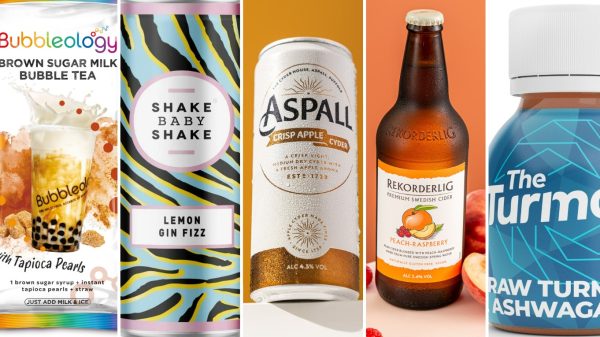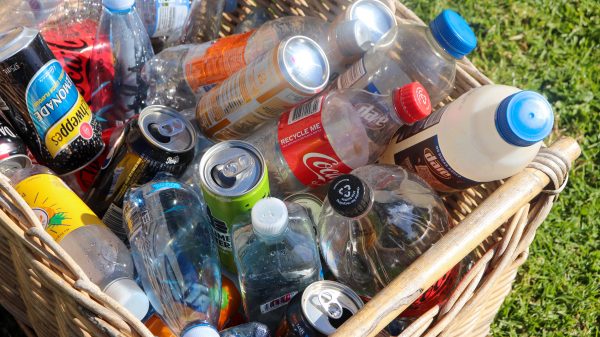As the country battles a cost-of-living crisis, inflation continues to skyrocket and food takes centre stage at Cop27, the UK grocery sector has found itself at the heart of the UK news cycle this year; perhaps more so than ever before.
Consumers, retailers, suppliers and farmers have seen seen more than their fare share of struggles this year, resulting in grocers battling to offer the best value as they strive to retain market share while households trade down, cut costs and – ultimately – buy less.
Despite the economic straits, the food and drink sector has also seen some hugely transformative and innovative steps being made in areas such as sustainability, healthy eating and plant-based foods – along with a whole host of trends which are set to pave the way into the New Year.
While we wave goodbye to the highs, lows, triumphs and tribulations that have made up the past 12 months, it’s likely the new year will also have some challenges ahead, but – as our industry experts predict – it’s not all bad news …
The cost-of-living crisis
A phrase we all know far too well, it appears we haven’t quite seen the back of rising prices just yet.
Last week, Iceland managing director Richard Walker told BBC Newscast that “the crisis is far from over,” adding “we’re not out of the woods and I think we’ve got to be realistic about that”.
Association of Convenience Stores (ACS) chief executive James Lowman agrees that while “retailers are doing everything that they can to avoid putting prices up,” they are “instead are looking at other areas of the business to see where they can try and make small savings to ensure that they can continue trading competitively”.
IGD chief economist James Walton says that “while it’s clear that there are considerable global and UK-specific economic headwinds ahead, there is some light at the end of the tunnel, with food inflation expected to dissipate slowly during 2023″.
Some retailers are also seeing positivity ahead. Waitrose head of product innovation and own brand, Emma Beale says that next year, the supermarket will “be just as focused on keeping prices of shopping basket staples as low as possible”.
With many consumers swapping from big-name brand staples to own-label products in a bid to cut costs this year, Global Data senior analyst, Nidhi Chauhan expects that we will “continue to see a shift to store cupboard and frozen goods, as consumers limit the amount they spend on fresh items and look for more affordable alternatives and ingredient replacements”.
She also sees this as a “long-term” change as spending on food “will continue to take a larger proportion of household budgets due to inflationary pressures sticking around”.
When considering thoughtful indulgence, Chauhan says “brand loyalty will take a hit”, adding that the “inclination to switch brands is nuanced, impacting some categories more than the others”.
Products and packaging
While reducing plastic packaging was at the forefront of many retailer and brand sustainability initiatives this year, it looks as though this is set to continue into 2023.
Innovation consultancy, PDD’s creative director Jamie Buckley expects “the ongoing discussion regarding ecommerce and its impact on sustainability efforts” will impact packaging by “moving more toward paper and unbranded” alternatives.
GlobalData global packaging services director, Dominic Cakebread agrees, adding that there is a “strong and rising demand for recycled material especially polymers”, with “paperisation” becoming more popular, replacing some plastics with paper and board.
He says that with a “tougher economic environment,” there will be a renewed emphasis on “improving efficiency and reducing material usage to drive down packaging costs.”
Buckley expects we will also “start to see the emergence of smart packaging”, shifting to augmented reality (AR) “which will bridge the physical packaging with the digital experience,” allowing for more personalisation.
Food waste
Reducing food waste was a top sustainability target across many of the UK’s supermarket giants this year, from Too Good To Go partnerships to removing ‘Best Before’ dates on fruit and vegetable lines, and Chauhan expects “food waste will move into the spotlight” in 2023.
She says that “with more consumers embracing upcycling and more creative use of byproducts, the merits of repurposing food waste will expand beyond sustainability to also encompass a more cost-efficient approach to food consumption”.
“An interesting tension between fresh and shelf-stable (canned, dried, frozen) products may ensue,” she adds.
Healthy eating and non-HFSS
Chauhan says that “the pursuit of healthier alternatives to indulgences such as red meat and alcohol will gather speed .
“The growing momentum of flexitarianism and ‘sober curiosity’ is indicative of a broader social wellness movement, largely driven by younger generations, and characterised by the desire to embrace a more moderated mindset and practice more intentional indulging.”
Conscious food swaps are also set to become more likely in the soft drinks industry, according to Green Beverages Group CEO, Periklis Venieris, who says: “We have witnessed a shift in purchase drivers among consumers, with an ever-growing cohort seeking healthier alternatives to phosphoric acid, aspartame, and artificial sweeteners found in their favourite soft drinks.”
He adds that with changing sugar regulation, “consumers will revaluate the ingredients they consume, in favour of natural ingredients.”
This comes following a year of twists and turns to legislation on products high in fat, salt or sugar (HFSS) which was “one of the biggest concerns” across the convenience sector, Lowman says, adding that “these concerns will continue through to 2023.”
“The Welsh and Scottish Governments are still considering what to do with their own HFSS regulations and whether they should go even further than those introduced already and we will continue to monitor the situation and provide retailers with regular updates and support.”
Upcoming food and drink trends
Upmarket retailer Waitrose has outlined some of its expected trends for 2023 in its Food and Drink Report, with experts stating coffee will be one of the next beverages to see innovation in the sector.
It says that while “we’ve had meatless meat, milkless milk and fishless fish, the next thing to have a sustainable makeover is coffee-less coffee. With scientists warning that coffee plants are extremely susceptible to climate change, a number of start- ups are racing to find acceptably authentic and drinkable alternatives.”
It also predicts ancestral eating will be on the rise as Pinterest searches for traditional Norewigan food are on the up by 120%, with traditional South African cuisine up 150% and 35% for authentic Filipino cuisine.
Waitrose says that the upcoming trend “is simply about eating like your grandparents used to, a return to homely, organic, unprocessed and unrefined food of old.”
It explains that this is partly a reaction to “over-the-top eating experiences”, causing people to look back at the food from their own heritage or the heritage of others, adding “it’s also a response to the uncertain economic times we are living in. Grandma knows best, and she often knows the thriftiest ways to cook.”










